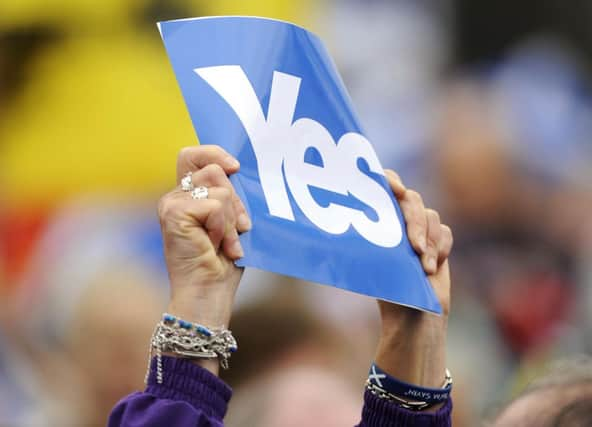‘Independence will fail to close inequality gap’


The prospect of achieving Scandinavian-style equality levels in line with SNP aspirations seems unlikely, according to the paper by the Economic and Social Research Council.
It warns that tax rises to redistribute wealth could see big earners move south of the Border to avoid them, while benefit hikes will discourage people from working and hit public finances.
Advertisement
Hide AdAdvertisement
Hide AdThe UK has one of the most unequal societies in the developed world and the issue has been thrust to the centre of the independence campaign with the SNP insisting a Yes vote could help reverse this.
But although an independent Scottish Government would have access to the full range of fiscal powers, the research carried out by Stirling University found the impact on inequality would be “relatively small”.
Dr David Comerford, author of the research from the Stirling Management School, said: “An independent Scotland would have access to fiscal powers with which it could influence inequality more directly than it can at the moment.
“However, achieving the level of inequality reduction the Scottish Government desires through fiscal policy alone would require major policy change. This could be problematic, because Scotland’s high degree of integration with the rest of the UK means such policy change could trigger migration between countries.”
The SNP government’s recent white paper on independence blames “almost 40 years of decisions at Westminster” and says a Yes vote in the September referendum will help “protect living standards, and reduce poverty and inequality”.
The report finds that if an independent Scottish government increased the rates of jobseekers’ allowance and income support by 10 per cent, it would reduce the Gini Coefficient gap from 4.7 points to 4.5 points. It means the gap with Nordic countries would fall by just 3.2 per cent.
An extra penny on the upper rate of income tax post-independence would close 1 per cent of the gap. Similarly, if it chose to lower the additional rate tax threshold from £150,000 per annum to £100,000, the gap would close by only 1.6 per cent.
The lower level of inequality in the Nordic countries is because workers’ wages tend to be more equal, before taxes and benefits, than in Scotland.
Advertisement
Hide AdAdvertisement
Hide AdHe said a 1p rise in income tax could net the government £210 million, once the potential for people to move away was considered. But he added that a 1p rise on the upper rate of income tax could net only £2m, as more high earners would move away.
Co-author David Eiser added: “Given the scale of labour mobility between Scotland and the rest of the UK, a fiscal solution to inequality could be detrimental to government finances, because raising taxes will increase incentives for high earners to relocate, and likewise raising benefits could harm work incentives.
“Achieving Nordic levels of inequality in Scotland will likely have to involve some equalisation of incomes before taxes and benefits, rather than a large increase in redistribution.”
Deputy First Minister Nicola Sturgeon said the report made it clear Scotland had “very limited powers” to tackle inequalities.
She added: “It also finds that independence will give a Scottish government real economic and social policy tools to address the issue.
“Aligning tax and welfare policies and helping people into work will help create a fairer society and boost economic growth, while full control over revenues will allow investment in childcare, enabling more women to take part in the economy. But these measures are only possible with independence.”
SEE ALSO